This issue of Making a Difference! is brought to you by…
D & D Distributors
Damon & Kandis Frazier
405.657.9586
Send Us An Email
Go Shopping
In this issue…
♦ How’s your BP today? ♦ Blood pressure ranges
♦ Understanding your blood pressure…
♦ High blood pressure symptoms ♦ Blood pressure diet tips…
♦ Supplements for healthy blood pressure
|♦ How high blood pressure affects your organs…
♦ A healthy heart for life!
♦ Customize your skin care with YOUTH ♦ YOUTH Complex…
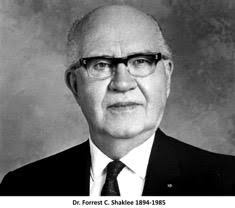 “Of course, you want to enjoy good health, but are you willing to pay the price? You can’t even enjoy a movie without paying the price, so why aren’t you willing to pay the price of good health. It takes time… yes… but the time spent in building health is not nearly as great as the time spent in illness.
“Of course, you want to enjoy good health, but are you willing to pay the price? You can’t even enjoy a movie without paying the price, so why aren’t you willing to pay the price of good health. It takes time… yes… but the time spent in building health is not nearly as great as the time spent in illness.
Good nutrition doesn’t cost nearly as much as hospital and doctor bills! We all know it takes a strong body to fight off the onslaught of disease.”
~ Dr. Forrest C. Shaklee, Sr.
How’s your BP today?
Blood pressure is a diagnostic number that is checked every time you go to the doctor. And… if you’ve been told you need to improve it, you may be wondering what blood pressure really is.
Your blood pressure is composed of two different numbers. It is written with one number over the other such as 120/80. Each of these numbers indicates how much pressure your blood is placing on the walls of your blood vessels at two different times.
The higher number is called systolic pressure. This is the amount of pressure your blood places when your heart is actually contracting. The lower number is called diastolic pressure and it’s the measurement taken when your heart is between beats.
While this is all very interesting, you may be trying to figure out why it’s so important to know more about your blood pressure… one of the most critical measurements you or your doctor can take.
Blood pressure ranges
⇒⇒ 120/80 or less is considered to be normal
⇒⇒ 125-129/80 or less = elevated.
⇒⇒ 130-139/80-89 = Stage 1 hyper-tension. Lifestyle changes are recommended.
⇒⇒ 140-160/90-100 or higher = Stage 2 hypertension. One or more medications in addition to lifes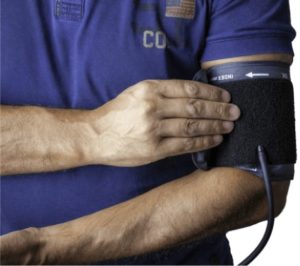 tyle changes are usually required.
tyle changes are usually required.
⇒⇒ 180/120 or higher = A hypertensive crisis. Consult a doctor immediately for medical intervention!
Be an active participant in your own healthcare by monitoring your own BP.
Understanding your blood pressure…
When blood pressure is normal, it’s a good sign that your heart is able to do its job properly and that your blood vessels aren’t under too much stress. There are other things that could cause problems, but blood pressure is one of the most significant factors in heart health.
If your blood pressure is too low, your heart has to work extra hard to pump the blood 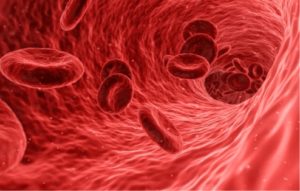 throughout your body. Often you’ll feel sluggish and tired because you’re not getting all of the oxygen and nutrients you need.
throughout your body. Often you’ll feel sluggish and tired because you’re not getting all of the oxygen and nutrients you need.
When blood pressure is too high, your heart also has to work harder to pump blood through-out the body. The vessel walls are pushed against with incredible pressure as blood circulates, causing major damage.
Eventually you can develop atherosclerosis, or hardened arteries. This condition makes your arteries weaker because they cannot stretch and contract as blood pumps. Cholesterol is depo sited more easily into harden-ed arteries causing blockages.
sited more easily into harden-ed arteries causing blockages.
All of this means you now have a higher risk of heart attack and stroke. Ist can also lead to kidney failure, loss of eyesight, and chest pain. If you have diabetes, this risk becomes even greater.
The good news is that understanding what blood pressure is can help you to take control of it and improve your health significantly.
High blood pressure symptoms
One of the most tragic truths about heart health is that there aren’t often symptoms for high blood pressure… often known as “the silent killer”. However, there are a few symptoms that can appear in cases of dangerously high blood pressure. Should you experience any of these, seek medical treatment as soon as possible.
Extreme headache. Different than a tension headache, this can be a warning sign of a stroke caused by high blood pressure.
Dizziness or fatigue. You might even be confused or have trouble communicating.
Chest pain. While this can signal a heart attack, it can also be a symptom of hypertension. Don’t ever ignore chest pain, Seek treatment quickly.
ever ignore chest pain, Seek treatment quickly.
Pounding in your head, chest, or your ears can be a sign that your blood pressure is much too high.
Nervousness and anxiety. This can not only be a symptom, but a chronic problem that adds to the danger of high blood pressure.
Sudden vision problems or blood in the urine. Both might indicate high blood pressure.
Remember that many people have no symptoms to warn them of high blood pressure, so… get yours measured often.
High blood pressure isn’t a death sentence, but it can be deadly if you don’t seek treatment, including lifestyle changes, supplements and if necessary, prescribed medications.
Blood pressure diet tips…
If you have high blood pressure, these diet tips can help you control it without resorting to medication:
Tip 1: Lower your sodium intake. Sodium causes your body to retain fluid increasing your blood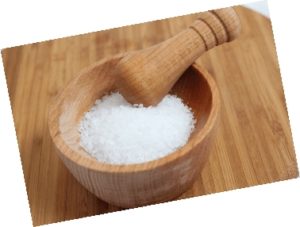 pressure. Lowering dietary sodium can lower your blood pressure as well. Sodium is present in many foods you might not expect. Read labels to keep track of hidden sodium.
pressure. Lowering dietary sodium can lower your blood pressure as well. Sodium is present in many foods you might not expect. Read labels to keep track of hidden sodium.
Tip 2: Eat fresh foods. Fresh foods are less likely to have sodium added to them. For foods such as canned beans and vegetables, you can lower the sodium content by draining and rinsing them with water before use.
Tip 3: Eat plenty of antioxidant-rich foods such as blueberries and raspberries. Antioxidants can improve your heart health and even lower high blood pressure. Antioxidants are also found in dark chocolate. Eating a small piece of dark chocolate every day can actually lower your risk of heart disease and even some cancers.
Tip 4: Increase your potassium. Potassium helps lower high blood pressure, reducing your risk  of heart attack and stroke. Many foods such as potatoes, cantaloupe, bananas, kidney beans and carrots naturally contain potassium.
of heart attack and stroke. Many foods such as potatoes, cantaloupe, bananas, kidney beans and carrots naturally contain potassium.
Tip 5: Eat less saturated fat and more healthy fats. High blood pressure is even more dangerous when combined with high cholesterol that can clog arteries. Healthy fats can actually lower cholesterol. And fish oil supplements such as OmegaGuard can help improve heart health as well.
These important diet tips can help control your blood pressure and improve your health.
Supplements for healthy blood pressure
If you’re worried about your blood pressure, certain supplements can help you keep it healthy and avoid problems.
One of the most effective is coenzyme Q10 (found in CoQHeart). Recommended for overall heart health, it contains antioxidants that allow your blood vessels to stay healthy.
In studies CoQ10 has been shown to reduce blood pressure by as much as 17/10 mmHg. That’s significant enough to help you either avoid medication or become less dependent on it.
Fish oil supplements such as OmegaGuard are also commonly prescribed to improve heart health. Doctors have long known that fish oil not only helps lower cholesterol, but also lowers blood pressure.
Lycopene (found in CarotoMax) is one of the best nutrients if your blood pressure is moderately high. Lycopene can not only keep it from becoming hypertensive, it can also lower your systolic blood pressure by 10 points or more.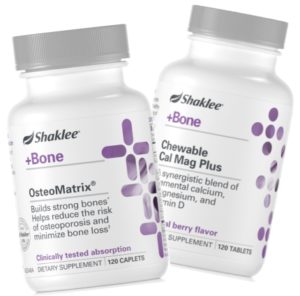
Calcium is another important nutrient to control blood pressure. Research suggests that adequate dietary calcium can help counteract the effect of too much sodium. Calcium supplements such as OsteoMatrix or Chewable CalMag Plus will help you obt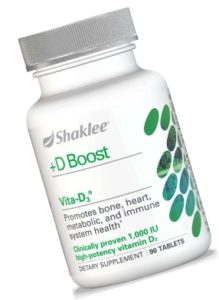 ain enough of this mineral.
ain enough of this mineral.
Vitamin D deficiency has also been linked to high blood pressure. Correcting this deficiency can help return blood pressure to normal. Ask your doctor to check your vitamin D levels and take Vita-D3 if it’s too low.
A healthy lifestyle can help prevent high blood pressure and medication can treat it. But you may be able to use blood pressure supplements to help aid your other efforts to have a healthy heart.
Health Chat | Healthy Heart
How high blood pressure affects your organs…
High blood pressure can negatively impact nearly all parts of your body.
Artery Damage
High blood pressure damages the muscles in the walls of your arteries, narrowing and making them more susceptible to plaque build-up. This eventually can result in coronary artery disease.
Heart Health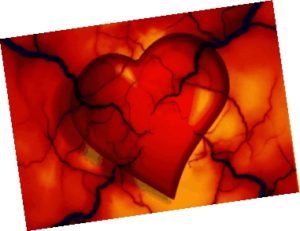
High blood pressure means your heart has to pump harder to circulate your blood, decreasing its efficiency. This can lead to heart failure.
Kidney Disease
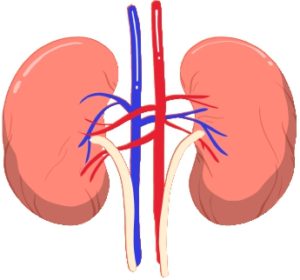 Hypertension is one of the leading causes of chronic kidney disease. Without proper blood flow, your kidneys have to strain to maintain their regular function. It can also cause kidney scarring, leading to swelling and eventually end-stage renal disease and kidney failure.
Hypertension is one of the leading causes of chronic kidney disease. Without proper blood flow, your kidneys have to strain to maintain their regular function. It can also cause kidney scarring, leading to swelling and eventually end-stage renal disease and kidney failure.
Brain Function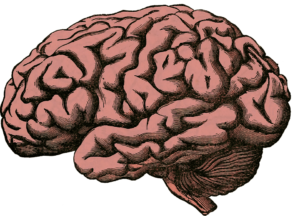
High blood pressure makes you significantly more likely to have a stroke. In some cases, very high blood pressure maintained for a long period can interfere with your regular cognitive function, and can progress to dementia if left untreated.
Vision Damage
There are very small, delicate blood vessels in your eyes that can be damaged by high blood pressure, a condition that can cause blurry or distorted vision.
A healthy heart for life!
Want a suggestion that will help keep your heart healthy for the rest of your life? The scientifically supported SmartHeart Blood Pressure Regimen is designed to help reduce your risk of heart disease by supporting optimal cardiovascular health and helping to retain healthy blood pressure.
The Shaklee Difference
Shaklee Blood Pressure. Studies have shown the key ingredients in Blood Pressure address two important mechanisms that are known to impact blood pressure levels already in the normal range.
♦♦ Promotes blood circulation
♦♦ Promotes healthy blood vessels
OmegaGuard. To ensure purity and potency, the fish oil in OmegaGuard undergoes a proprie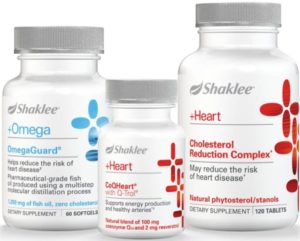 tary, state-of-the-art molecular distillation process that:
tary, state-of-the-art molecular distillation process that:
♦♦ Concentrates natural, beneficial omega-3 fatty acids including EPA & DHA
♦♦ Removes lead, mercury, arsenic, cadmium, dioxins, PCBs, and other contaminants
♦♦ Minimizes odor and fishy aftertaste
CoQHeart with Q-Trol. Delivers an all-natural proprietary blend of clinically tested coenzyme Q10 plus resveratrol, two ingredients that provide potent support for heart health.
SmartHeart™ Blood Pressure, from Shaklee
The Science Behind SmartHeart™
Customize your skin care with YOUTH
Did you know you can design a personal skin care regimen based on your skin’s needs? Let YOUTH Luminous Gel Oil Cleanser and Perfecting Skin Toner be the backbone of your daily skin care routine, then custom fit your serum, moisturizer, and night cream for healthy and beautiful skin.
Here are some hints to help you make your selection:
First determine the YOUTH products that are best suited for your skin type. Decide what your key concern is, such as getting more hydration, preventing the early signs of aging, protecting your skin from the weather, or caring for sensitive skin.
The Personalized Regimen includes:
Step 1: Luminous Gel Oil Cleanser
Step 2: Perfecting Skin Toner
Step 3: Select a serum… Activating Serum to rejuvenate skin, improve skin radiance and texture, and reduce fine lines… OR… Moisture Activating Serum to replenish moisture instantly and revitalize dehydrated and dry skin.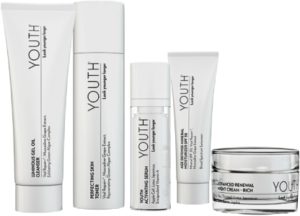
Step 4 Day: Select a moisturizer… Age Defense Mineral Moisturizer to combine environmental protection and moisturizing benefits… OR… Moisture Lock Day Cream to quench and soothe dry skin, plus plump and soften skin.
Step 4 Night: Advanced Renewal Night Cream to support your skin’s cell renewal process.
YOUTH Personalized Regimen
YOUTH Complex…
This powerful formula of botanicals and vitamins is present in every single YOUTH product:
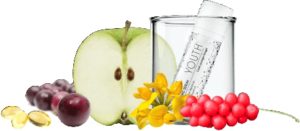 Lotus Japonicus regenerates cells to produce more collagen and elastin.
Lotus Japonicus regenerates cells to produce more collagen and elastin.
Schisandra Chinensis Fruit Extract provides nutrients and energy to skin.
Muscadine Grape protects and repairs cellular DNA; blocks collagen and elastin breakdown.
Vital Repair+ Complex blocks free radicals and encourages cell growth.
Vitamin A Retinol promotes cell renewal, improves skin texture, and reduces fine lines.

